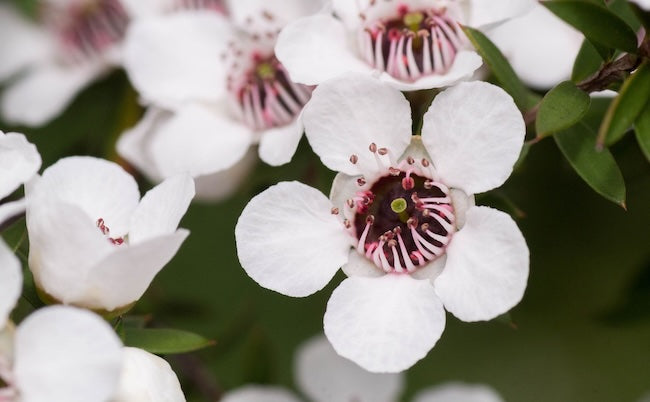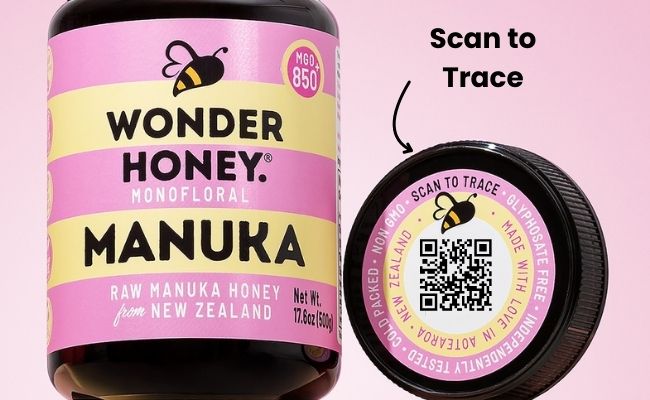Antioxidants in Manuka Honey: Nature's Protective Power
Manuka honey, produced from the nectar of the Manuka tree (Leptospermum scoparium), is celebrated not only for its unique flavor and antibacterial properties but also for its rich antioxidant content. Antioxidants are compounds that help neutralize free radicals in the body, reducing oxidative stress and potentially lowering the risk of chronic diseases. This webpage explores the various antioxidants found in Manuka honey, their health benefits, and their significance in promoting overall well-being.
Understanding Antioxidants
Antioxidants are molecules that can donate electrons to free radicals, stabilizing them and preventing cellular damage. Free radicals are unstable molecules that can cause oxidative stress, leading to cellular damage, inflammation, and various health issues, including heart disease, cancer, and neurodegenerative disorders. The body produces some antioxidants naturally, but dietary sources, such as fruits, vegetables, and honey, are essential for maintaining optimal health.
Key Antioxidants Found in Manuka Honey
-
Phenolic Compounds :
- Manuka honey is rich in phenolic compounds, which are known for their strong antioxidant properties. These compounds include flavonoids and phenolic acids, which help scavenge free radicals and reduce oxidative stress.
-
Examples of Phenolic Compounds in Manuka Honey :
-
Gallic Acid : A potent antioxidant that has been shown to protect cells from oxidative damage and reduce inflammation.
-
Caffeic Acid : Known for its anti-inflammatory and antioxidant effects, caffeic acid can help protect against chronic diseases.
-
Quercetin : A flavonoid with strong antioxidant properties, quercetin has been linked to various health benefits, including anti-inflammatory effects and improved cardiovascular health.
-
Methylglyoxal (MGO) :
- MGO is a unique compound found in high concentrations in Manuka honey, contributing to its antibacterial and antioxidant properties. While primarily known for its antibacterial effects, MGO also exhibits antioxidant activity, helping to protect cells from oxidative damage.
- Research has indicated that MGO can enhance the antioxidant capacity of Manuka honey, making it a valuable component in combating oxidative stress.
-
Vitamins :
- Manuka honey contains small amounts of vitamins that contribute to its antioxidant properties. Notable vitamins include:
-
Vitamin C : A well-known antioxidant that helps protect cells from oxidative damage, supports the immune system, and promotes skin health.
-
Vitamin E : Another important antioxidant that helps protect cell membranes from oxidative stress and supports overall health.
-
Minerals :
- Manuka honey is a source of essential minerals, such as zinc and selenium, which play a role in antioxidant defense. These minerals are crucial for the proper functioning of antioxidant enzymes in the body.
-
Zinc : Supports the activity of superoxide dismutase (SOD), an important antioxidant enzyme that helps neutralize free radicals.
-
Selenium : A component of glutathione peroxidase, another key antioxidant enzyme that protects cells from oxidative damage.
-
Other Bioactive Compounds :
- Manuka honey contains various other bioactive compounds that contribute to its antioxidant capacity. These include:
-
Dihydroxyacetone (DHA) : A precursor to MGO, DHA has been shown to possess antioxidant properties and may contribute to the overall antioxidant activity of Manuka honey.
-
3-Phenyllactic Acid (3-PLA) : This compound has been linked to antioxidant activity and may help protect cells from oxidative stress.
Health Benefits of Antioxidants in Manuka Honey
-
Reducing Oxidative Stress :
- The antioxidants in Manuka honey help neutralize free radicals, reducing oxidative stress and protecting cells from damage. This protective effect is crucial for maintaining overall health and preventing chronic diseases.
-
Anti-Inflammatory Effects :
- Many antioxidants found in Manuka honey, such as flavonoids and phenolic acids, possess anti-inflammatory properties. By reducing inflammation, these compounds may help lower the risk of chronic inflammatory conditions, such as arthritis and heart disease.
-
Supporting Immune Function :
- The antioxidant content of Manuka honey, particularly vitamin C and other bioactive compounds, can help support the immune system. A strong immune response is essential for defending against infections and diseases.
-
Promoting Skin Health :
- The antioxidants in Manuka honey can benefit skin health by protecting against oxidative damage caused by UV radiation and environmental pollutants. This protective effect may help reduce signs of aging and promote overall skin vitality.
Manuka honey is a remarkable natural product that offers a wealth of antioxidants, contributing to its health benefits and therapeutic potential. The combination of phenolic compounds, MGO, vitamins, minerals, and other bioactive compounds makes Manuka honey a powerful ally in the fight against oxidative stress and related health issues. Incorporating Manuka honey into a balanced diet can support overall health and well-being, making it a valuable addition to your nutritional regimen.
References
- Adams, C. J., et al. (2008). "Isolation by HPLC and characterisation of the bioactive fraction of New Zealand manuka (Leptospermum scoparium) honey." Journal of Antimicrobial Chemotherapy , 62(6), 1211-1217. Link to study
- Molan, P. C. (2001). "Why honey is effective as a medicine." Frontiers in Microbiology , 7, 569. Link to study
- K. M. M. Alzahrani, M. A. Farag, and M. A. El-Shafey. (2020). "Antioxidant activity of Manuka honey and its potential health benefits." Journal of Food Science and Technology , 57(4), 1450-1458. Link to study
- Kato, Y., et al. (2012). "Identification of a novel glycoside, leptosin, as a chemical marker of manuka honey." Journal of Agricultural and Food Chemistry , 60(34), 3418-3423. Link to study
- Al-Waili, N. S., et al. (2011). "Honey and microbial infections: A review supporting the use of honey for microbial control." Journal of Medicinal Food , 14(10), 1079-1096. Link to study






